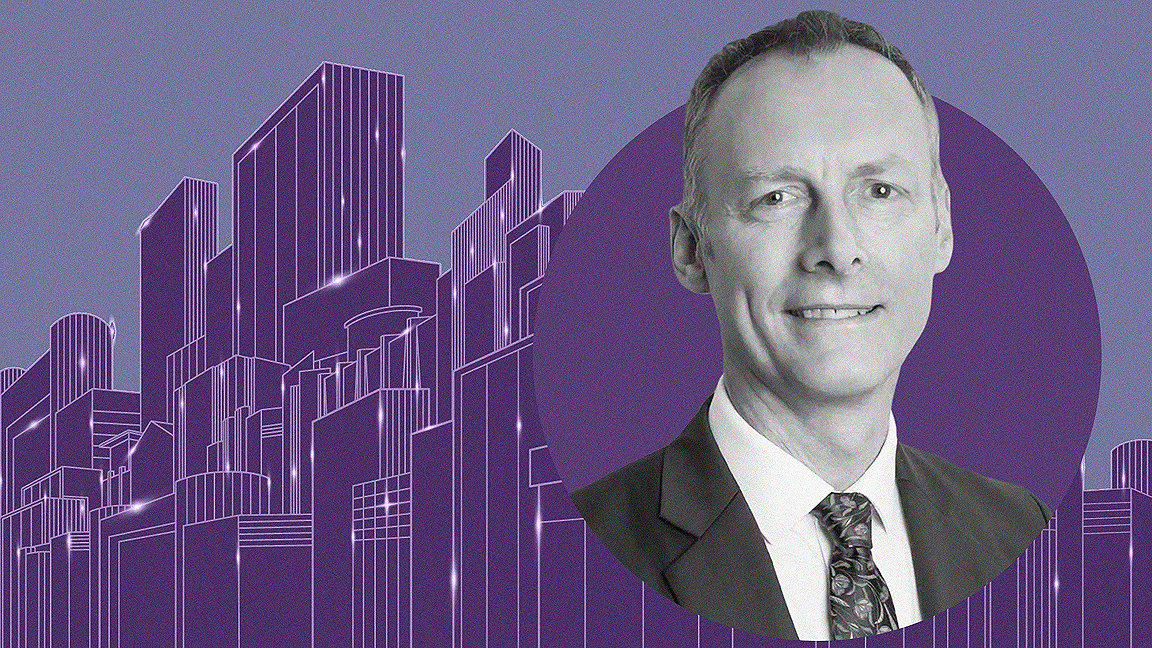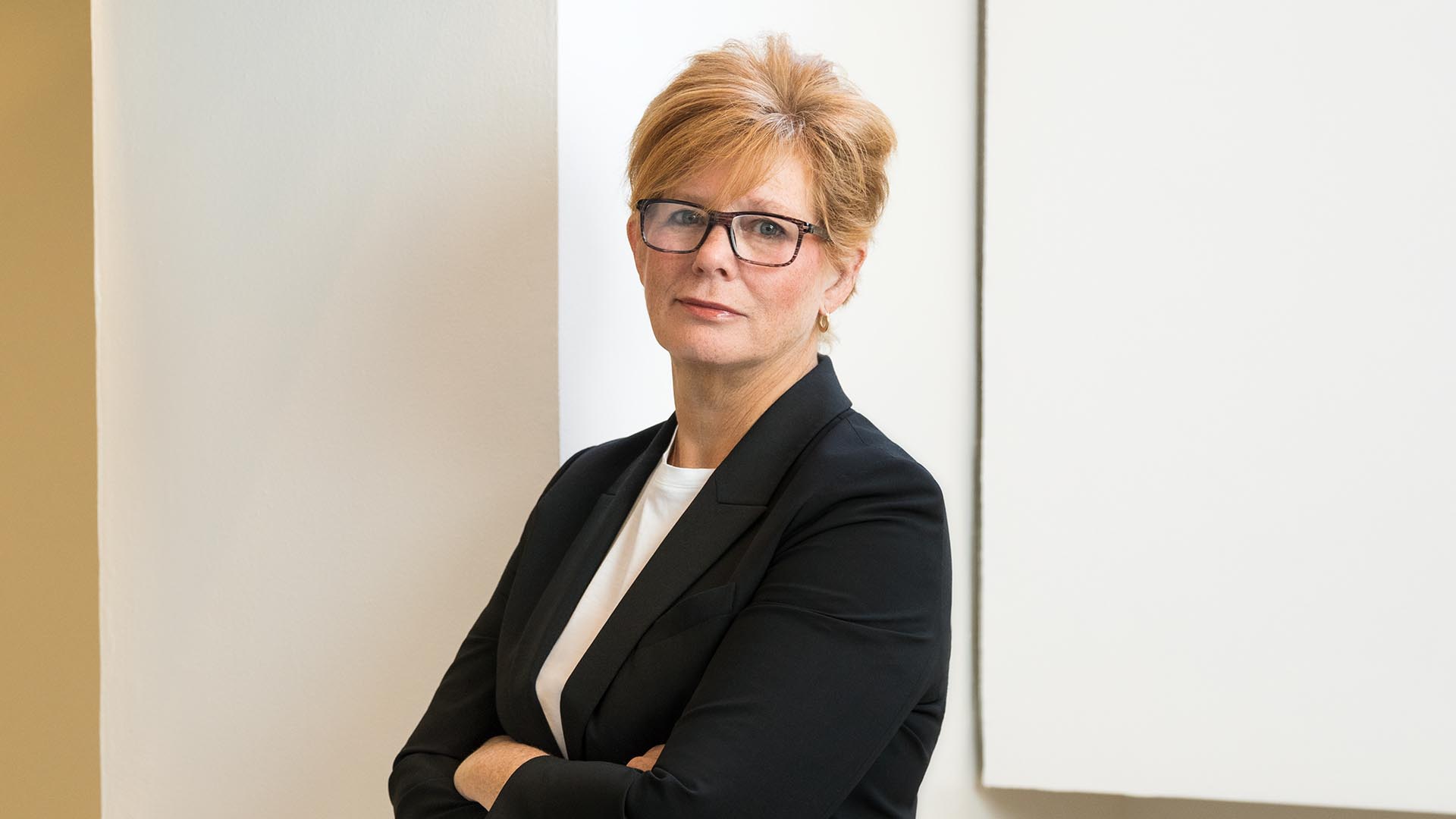
The journey to his new role has not been linear for Justin Young who, as CEO, is part of the team responsible for leading RICS into its next era.
Having most recently been chief operating officer at Knight Frank with a stint at law firm Clifford Chance before that, his unique experience and outlook may be what the organisation needs to drive it forwards.
“I've come to RICS from Knight Frank, where I was COO for five years, so I've a good understanding of, certainly part of, the property industry,” he reflects, adding that at Clifford Chance he lived in Singapore for six years. These two roles were focused on organisational transformation, developing business structure and enhancing efficiency by looking at different operating models to improve them.
“It's about transformation, that's what's relevant to RICS now. This is an organisation that wants and needs to transform. An advantage of my time spent in Singapore is that I understand what it's like to be in the global network of an organisation that's headquartered in London.”
The value he places on positive change and continuous evolution rings loudly. There is no glossing over the challenges RICS faces for the organisation to move forward or of the responsibility he has in guiding both staff and members through this next phase.
As he puts it, “we've got a strategy, we know where we're going with it and we're developing into a more effective organisation. We want to be a truly member-focused organisation again – we've got to transform to get to that.”
What needs to change at RICS?
“With transformation comes the fact that you can have all the best ideas in the world, but you've got to be able to implement those ideas and you've got to be able to bring people with you” he says. But what will these relationships be going forward? How will RICS support its members?
“For me, as far as the direction of RICS goes, it's coming back to its core purpose,” says Young. “Which is, of course, serving the public interest but doing that through an excellent membership body. And so, we need to be closer again to our members and give them what they need to be able to provide brilliant services to their clients.
“Whether that's through training and education, whether it's the regulation part of the organisation or thought leadership or bringing through the next generation of talent – these are the things that we've got to do.”
There is no room for a strategy that isn't joined up across all regions and departments, or any value in RICS as a body being disconnected from its members. When asked about balancing the 150-year heritage of RICS with the need to modernise, he says the need “to remain in touch with tradition and the roots of the institution” are on his agenda.
“I think tradition absolutely has its place in any organisation, particularly in a membership organisation that has been around for so long. But, you know, you have to evolve with the times. It's the values that remain, those are the important traditional pieces of an organisation.”
Having worked at Hewlett Packard before joining Clifford Chance, the need to use technology wisely – to evolve practice and processes for positive change – is something Justin is experienced in. He understands “the use of technology to make organisations more effective” alongside the need to retain integrity. The ethos of service, of being member-centred and of effecting positive change in the world are not only considered essential values for RICS, but ones he is keen to strengthen.
“I do feel slightly privileged to lead an organisation like this” he says. “It's an organisation that has a somewhat higher purpose because it operates in the public interest. That's quite compelling in itself.”
The ethos of service, and how best to enact that, is important to Young. Having begun his career in the army, this is not surprising. It is also no surprise to find he is invested in seeing tangible results and plans to be with RICS for the long haul.
"Leading RICS is a long-term commitment. Things are not going to change overnight. The leadership that I know I need to provide is on getting things fixed, on the one hand quickly, but also creating an environment that can be successful in the medium to long-term."
Restoring faith, rebuilding trust
How does a global institution ensure all members feel valued? This is a goal that underpins all others at RICS and the need for this is not lost on Justin.
“I think members need to know we are genuinely focused on them. That's really what's missing. And that some of the decisions that have been taken in the last few years have not always had members at the forefront of minds.”
He's careful not to disregard the impact of previous decisions – both positive and negative – but offers a transparent picture of where the organisation stands currently and how he sees RICS evolving as it goes into a new era. When the question of what is happening with the Diversity, Equity, and Inclusion survey comes up, he is quick to commend its importance and is aware of statistics and barriers.
“We need to show that yes, this is a sector in which you can thrive, you can develop, and you can meet your life's ambitions. That's what I really want to use the data for, to understand where we've got gaps, why and to do something about it.”
The balance of understanding what current members want, what current members need and ensuring the next generation are inspired by careers in surveying is on his mind. How does RICS nurture the future pipeline while not neglecting its experienced members? And can RICS balance these things while advocating the expertise of its membership and liaising with senior stakeholders?
For this, collaboration is key. The next generation need access and connection to members who are well established, but also more opportunity to connect with those who are closer to them in age and career-journey. It is RICS’ role to help facilitate this. Young cites expanding on the 'what do surveyors do?' work and draws attention to the activities of the early engagement team, who work closely with education providers to enhance awareness and enthusiasm of surveying.
“We've got a strategy, we know where we're going with it and we're developing into a more effective organisation” Justin Young, CEO at RICS
The value of RICS Matrics and regional group networks also get a specific mention. It is the mixture of member sectors, member experiences and member career paths that make RICS such a pool of expertise.
By attending events like COP28 (where RICS is the largest professional body for the built and natural environment with Blue Zone access) and working with other member institutes, the value of RICS as a body and of its members can be seen more explicitly. Having released the Whole Life Carbon Assessment (WLCA) Standard 2nd edition, the International Building Operation Standard and the forthcoming Retrofitting Standard the RICS has made clear it holds the expertise to be discussing skills and sustainability at the highest levels.
“The relationships are really important because a lot of what we're about is influencing policy in the public interest and providing professional expertise to members of government and officials to make the right decisions. It's a really important relationship that we have because it's always with the public interest in mind.”
“We need to be closer again to our members and give them what they need to be able to provide brilliant services to their clients” Justin Young, CEO at RICS
Early highlights as CEO
Although he’s only been in the role a few months, Young already has some highlights. He describes “meeting lots of members, whether it's in Birmingham, Belfast or in London.” He also recalls enjoying a “meeting with the Matrics chairs that was only meant to be 20 minutes, but we ended up there for 45 minutes, having a real back and forth chat – it was great!”
The events that RICS have been running around DEI, the WLCA launch, and various conferences also get a mention and were “just really fantastic to be part of, really energising!” Reflecting on the internal engagements so far, RICS Vision events are recalled with fervour because of the “opportunity to bring people together” and “spend time reaffirming our direction as a team.”
It's clear that discussing ideas and focusing on what RICS does and how it can do it better is motivating for Young – the future of RICS is to regain its mojo and facilitate more of this exciting energy.

